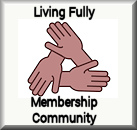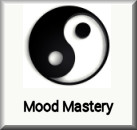My blog for this week is about defensiveness. Recently, I have seen the challenges that people have when defensiveness is their strategy when in relationship difficulties. As you may know, it is one of the coping mechanisms that John Gottman has shown through research, that leads to the destruction of relationships. One may wonder why people continue in that vain when it clearly does not work for them in their couple communication. Remember that it is a coping mechanism when you are feeling threatened by something. If you resonate with this strategy as one of your favourites, you have probably been practicing this way of coping for some time. You can also probably see how it has become an automatic response that really needs work in order to manage the impulse. If this is one way that you or your partner recognize as a way you respond, it might be time for some change in this… When you are defensive, you feel an intensity in the conversation that has you blaming the other or using other nonworking strategies such as shutting down or moving out of the relationship in some way. Your vision of what is going on immediately narrows.The communication becomes difficult or ends. This never ending negative cycle provides a great motivator to learn something new. So what are some ways for you to manage your defenses?
- One of the first skills that is necessary is to check your belief system. What do you believe about relationships? When there are challenges between you and your partner, is it more likely that you both have a part in the challenge or that it is likely one person only. Sometimes when we are not in a conflict, we can clearly see that certainly when 2 people are in an intimate relationship, there is a shared responsibility. We also find it much easier when we witness others who are in conflict and we can clearly see a shared responsibility in some way. Notice I am not looking at proportionate responsibility. Going there will not alleviate your suffering from the conflict nor head you towards healing of the conflict. Another cognitive adjustment you may need is to look at your willingness to let go of your self protectiveness in your relationship. When you have looked at or adjusted your belief system, you will want to firmly embrace that belief for your conflict management.
- Another skill to cultivate is the awareness of your body and emotional internal states. When you are defensive, you are often feeling a fight or flight response in your body. Your heart may begin to race and you can feel your emotions heighten.
- When you recognize your heightened internal state, then you need to use the skills of self soothing, such as breathing techniques and self talk that is soothing. Move to a positive mindset where you are thinking thoughts that are positive -‘ we can get through this’. Oh -and remember to keep your mouth closed at this point – possibly the most difficult thing for some to accomplish!
- This next part is important for the movement towards resolution of the conflict in your relationship.Your partner has made a complaint, you have become aware of your immediate desire to become defensive, and you have used the self soothing skills to manage the impulse. You are doing great. Remembering your belief about relationships, you then immediately take responsibility for whatever part you can in what your partner’s complaint is regarding your relationship. This requires listening on your part and while you are self soothing you may have missed the meaning of the message your partner is sending you. You may ask your partner for more clarification which gives you a bit more time to hear and to let go of your self protectiveness and find what you can to accept responsibility for.
- As you are learning this skill, use a repair attempt when you automatically respond with defensiveness instead of using your beginning self control skills. You can say something like, ‘I’m sorry. I wish I had said…’ and let your partner know you are able and willing to accept some responsibility for what happens between you.
Cheering you on in your management of your defensiveness! Go forth and be wonderful!
‘I count him braver who overcomes his desires then him who conquers his enemies; for the hardest victory is over self.’ Aristotle
*Remember there is still room for you in the upcoming workshop to develop your marriage skills. See www.7principlesformakingmarriagework-workshops.com for more information.





